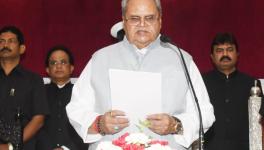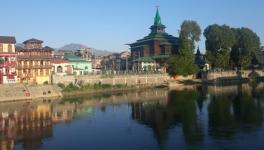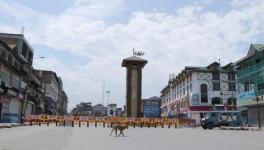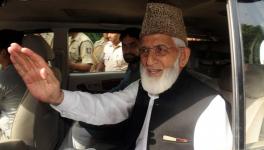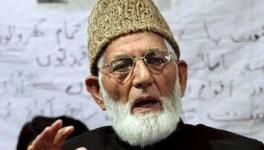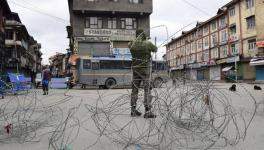Don’t Dismiss Kashmiris’ Silent Suffering as Fatigue: Abdul Gani Bhat
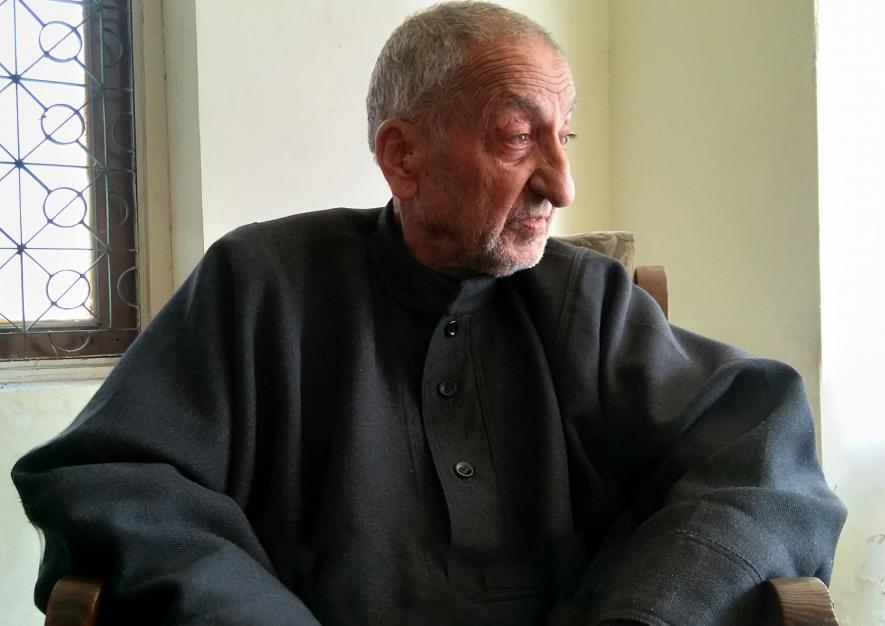
New Delhi unilaterally abrogated the special status of the state of Jammu and Kashmir. What happens next?
This needs no talking, no discussion, and for a reason, which is that India and Pakistan will have to learn to live honourably and with dignity. For that, we need to address disputes, get closer to each other, promote an understanding of the dynamics of the situation across the world. And then come to grips with the heartbeats of the people in this subcontinent. The bona fide people of the sub-continent want peace. They want to live with dignity, but for that we have to remove the bottlenecks.
But is New Delhi ready to provide a platform for such a dialogue?
To begin with, India and Pakistan will have to rise above yesterday, above intransigence, and above hostility. They will have to put their heads together and address the issues with courage, imagination and flexibility. If they don’t do it, I am afraid we may be caught up in a situation where from it would be difficult to save ourselves.
Do you think India and Pakistan are on a brink of war over Kashmir?
India and Pakistan have a problem. Not one but many, Kashmir is one of them. They have fought wars, no doubt about it. The consequence of the disputed nature of Kashmir was that it ultimately broke Pakistan into two. Kashmir is what it is all about! The problem is not Article 370—the problem is tomorrow [the future]. I want an imaginative leadership in India and Pakistan to promote goodwill between the two countries, and build bridges of communication, understanding, and accommodation. When they rise to the occasion, I am sure you will have no questions to ask.
But since 1947, there is a consistent fight amongst Kashmiris for the right to self-determination?
I am not in 1947. I belong to an era in which India is a nuclear country and so is Pakistan. And if two hostile, nuclear neighbours have a problem, then it has to be addressed, come what may. It is not Article 370 [revocation of special status] but the [Kashmir dispute] that has a direct impact on our tomorrow [future]. Therefore, I plead, as a Kashmiri individual, for a comprehensive dialogue on Kashmir between India and Pakistan. We need to develop contacts, for which they must start talking to each other. If they don’t do the talking it will be the peak of intransigence.
Why do you still believe that dialogue is the way forward for the Kashmir issue?
[I still believe in] dialogue and only dialogue. It is the only way out for the two nuclear powers to ensure economic, cultural, geographical, and diplomatic stability in the region. This is very important. India is the world’s second-largest country [in population terms] and Pakistan is no Banana Republic either. It is equally powerful as far as nuclear weapons and stockpiles are concerned. This is why I would choose the civilised way to address their issues.
You and Hurriyat have always asked for dialogue but do you think New Delhi is stubbornly against fruitful talks?
Well, there is absolutely no alternative available, neither with India nor Pakistan, other than talking. The reality has been accepted all over the world that if we do not address issues and resolve them, then situations can arise where from where it would be almost impossible to emerge.
Do you see Kashmiris playing a part in this dialogue between India and Pakistan?
These are the details; the problem is the dialogue. The root cause of the tension in the region has to be addressed.
There are concerns about Muslims living in mainland India. Do you think what is happening in Kashmir will have an impact on them?
Communalisation of politics is not my business. It can be somebody’s business, maybe even [of the] people in power… It may be the business of such people who do not want us to live like emancipated human beings, as brothers and friends who share a brighter tomorrow equally and [live in] a better region.
Do you think there is a fatigue among Kashmiris due to the hartal politics or continuous shutdowns?
Kashmiris have locked horns with the world’s second-most populous country. Kashmiris have to have a method to do this. They chose a method, the most civilised method: No processions, no stone-pelting, not the roar of guns. [They have expressed] anger with grace, which the entire world has recognised. Second, they suffer pain in silence, which again the world is agitating against. Only Kashmiris can suffer so, in silence. And don’t dismiss them as a fatigued lot.
Are abrogation of Kashmir’s special status and the right to self-determination of Kashmiris interlinked? Because Hurriyat has always said that Article 370, if revoked, would lead to a demographic change...
I have not turned old and grey because of the question you put to me, but because I worry that the future of our children, in India and in Pakistan, is in danger. I do not want that. I want a brighter future and a better region; a hope to build bridges of understanding between nations and people.
What of the fear of demographic change, should Kashmiris be worried?
I believe we are all equals, whether Hindus or Muslims or Sikhs, and even those who do not believe in god and who do not have any religion. They are like you or I, and therefore, when I believe in the oneness of god, I believe in the oneness of humanity… India and Pakistan must come together and ensure a stable tomorrow for all in the region.
Kashmir used to have its own Constitution, its own flag, how important are these?
For me, tomorrow is important. Not yesterday, I don’t want to live in yesterday. I don’t want to feed into yesterday. I want to live in a bright tomorrow.
Do you think Kashmiri resistance today different from how it was in 1989?
Kashmiris seek a settlement through talks. And to push ahead, well, they may occasionally use different methods, granted—but we need to appreciate that Kashmiris are a peaceful lot. They seek peace and prosperity not only for themselves but for the entire subcontinent. This is where the political wisdom of Kashmiris should be taken into consideration.
You have held talks with the AB Vajpayee-led Bharatiya Janata Party (BJP) in 2003 and 2004. You went to meet former deputy prime minister LK Advani in Delhi. Is the present BJP government different for Kashmir than the previous one?
I don’t want to draw these lines, for that would mean I have started talking politics. What I feel disturbed about is the attitude of the leadership in India and Pakistan. The attitudes have to change. Then the approaches [on Kashmir dispute] will come up, sensible approaches will come up, and we will be able to ensure a better future for our people in the sub-continent. I trust that [Pakistan PM] Imran Khan and [Indian Prime Minister Narendra] Modi will make history, that they will behave like statesmen and not politicians. I trust that they will deliver…
There is a civil curfew going on in Kashmir. How different is it from 2008, 2009, 2010, 2013 or the 2016 mass agitations?
I wish, I could be a writer, then I could write an essay on the question you want me to answer. But, let me tell you, the people of Kashmir have to be understood with reference to their collective political consciousness. The element of uncertainty in their consciousness has to be understood. The moment you do it, I am sure as death, we will be able to find a way out [of Kashmir issue].
There have been tortures, detentions of minors and Public Safety Act has been slapped on Kashmir’s leaders. What do you make of it?
Well, this should speak volumes about the element of uncertainty prevailing in Jammu and Kashmir, in India as a whole and in Pakistan. Remember that the US Senate met and formed an opinion about the people of Kashmir with reference to India and Pakistan. They asked the two countries to initiate a dialogue and settle down, not just with a view to ensuring the economic and strategic projects, but the future of people in the subcontinent.
Daanish Bin Nabi is a freelance journalist in Kashmir. The views expressed are personal.
Get the latest reports & analysis with people's perspective on Protests, movements & deep analytical videos, discussions of the current affairs in your Telegram app. Subscribe to NewsClick's Telegram channel & get Real-Time updates on stories, as they get published on our website.









